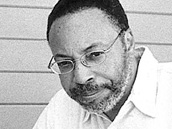At First, Lonely
By Tanya Davis
Charlottetown, PEI: Acorn Press, 2011
64 pp. $18
A Life of Water
By Carey Bray
Tanya Davis is a singer/songwriter who is also Halifax’s Poet Laureate for 2011-2012. She has won the CBC National Poetry Face-Off twice, and so her real debut in poetry has been as a performer, not so much as an author. Her first collection, At First, Lonely, transfers her finally – finely – from the stage to the page.
The pieces are lyrics, word-songs, usually pages long (but the pages utilize a lot of white space, so poems are actually a bit shorter than they seem), with the meanderings and insights of heart-felt, thoughtful conversation. Reading Davis is a bit like sitting in Tim’s, overhearing someone tell of heartbreak or halitosis or hitchhiking, with a down-to-earth vocabulary, intimacy, and, here and there, a striking image or idea. Or it’s more like listening to coffeehouse Leonard Cohen or fancy-free Joni Mitchell: There’s a folksy, Beat persona at play, charitable and disingenuous, charming and disarming.
“Fragility Understandable†flirts with cliché – “Because your bones crack / and break / because your heart beats within a cage / and cages are to be escaped†– but ends nicely: “When other houses become lanky skeletons / dust settling / remember your own / heart in a collection of bones.†The poem moves like a song, and is moving, especially if read aloud just so. It’s unfair to quibble with the conceit – the heart is in a cage, eh? But that “cage†is actually protection for an essential and vulnerable organ. How does – or should – one escape it?
“How to be alone†is another lyric, as chatty as a newspaper column (blush) or as catty as an editorial, that advises, among other things, “if you’re happy in your head then solitude is blessed and / alone is okay.†That’s a long bumper sticker. Better lines are these: “But alone is a freedom that breathes easy and weightless / and lonely is healing if you make it.â€Â That’s a fridge magnet.
Pleasant it is to wade through platitudes and discover sudden, searing incandescence: “I have daydreamed about the days our skin was first waking / and of the love we made then / like we were scorched earth and it was raining.â€
Davis’s showstopper poem is “To Mary Magdalene who wept.†It’s a feminist, womanist revision of the Gospels, and it rocks – if with casual blasphemy: “The man wasn’t clean until you made him.†Davis imagines that Mary M. offers J.C. this “defiant rebuttalâ€: “Seriously Jesus, … feel this / a human heart beating / within the chest of a woman with whom you are sleeping / you are leaving and so, of course, … I am weeping.†One could wonder about what other heart that Mary could have, if not human.
But, never mind. These are poems to enjoy – their simplicity, sympathy, and wistful nonsense. Whatever is not to like is just cuddly. In a sense, Davis transforms the opening of the old CBC T.V. show, The Friendly Giant (1958-85) – which talked about chairs to curl up in – into comfy, adult-oriented radio lyrics.
Carey Bray’s A Life of Water is a self-published debut volume, though his bio says that sections of the book “have been published and awarded.†The Wolfville, N.S., author has filled his volume with photos, supporting his interest in meditating on family, history, and geography. According to one poem and photo, Bray is related to Maritimes-born Prime Minister R.B. Bennett (1870-1947): “Second cousin. Tired eyes meet. / No betrayal of recognition. / No hint of our blood.â€
Bray’s lyrics are imagist epigrams. He packs a lot into relatively narrow confines. See “Escapeâ€: “Without consent we eloped. / Creating a new Moncton. // The two of us in a car. / The car—Oh, that car— // That navy ’74 Torino. / The one that crashed. // A vehicle for change. / Ended in a canal.â€
Bray’s style – picturesque, pithy, and pointed – reminds one of the U.S. poet Carl Sandburg, who also had an eye for succinct illustration and an ear for talk. Check this Battle of the Atlantic lyric: “Forget this Crusade on the waves / the tired, busted night, / painted in cracked, North Atlantic blacks. // Forget subtle crushes / of dreams over-washed by swaths, / deep cerulean blue. // Forget foam fingers / slamming HMCS sides, / cradling young skulls, dipped softly in brine.â€
Bray is – like Davis – a young(er) poet deserving of admiration and attention. One also applauds his effort to explore all the resources of the art of poetry – without apology, and also, in reality, quite oblivious to applause.





No Comments so far ↓
There are no comments yet...Kick things off by filling out the form below.